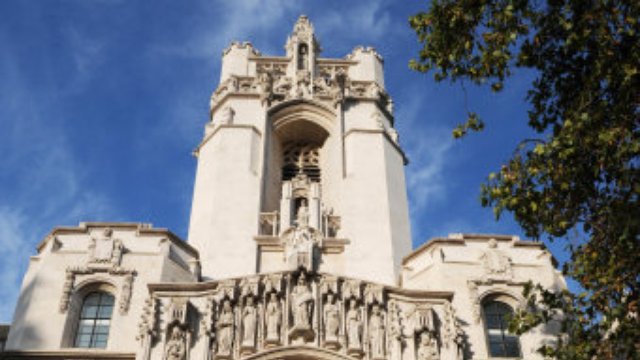On Air Now
The Capital Evening Show with Jimmy Hill 7pm - 10pm
28 July 2016, 14:10 | Updated: 28 July 2016, 14:12

Nicola Sturgeon has pledged her government will "clarify'' parts of the controversial named person policy after the UK's highest court ruled the legislation is currently "incompatible'' with European human-rights laws.
The flagship policy, introduced by the SNP administration at Holyrood, set out to appoint a single point of contact, such as a teacher or health visitor, to look out for the welfare of children under 18.
Opponents claimed the measure, part of the Children and Young People (Scotland) Act 2014, breached parents' human rights.
Five Supreme Court justices in London have now allowed an appeal brought by those opposed to the scheme.
They decided information-sharing provisions in the scheme could result in disproportionate interference with Article 8 rights under the European Convention on Human Rights (ECHR) - the right to a family and private life.
The Supreme Court is proposing to make an order to give Scottish ministers "an opportunity to correct the defects'' it has identified and it has set a 42-day deadline for them to make submissions on what the terms of that order should be.
The justices ruled that "in the meantime'' as the "defective provisions'' under the 2014 Act "are not within the the legislative competence of the Scottish Parliament, they cannot be brought into force''.
First Minister Nicola Sturgeon tweeted that the Scottish Government "accepts named person ruling''.
She stated: "We will clarify info-sharing provisions and implement what court described as 'legitimate' policy.''
Ministers had planned to roll out the initiative, which has already been piloted in some areas, across Scotland on August 31.
Deputy First Minister and Education Secretary John Swinney insisted it would still be "implemented nationally at the earliest possible date'' once changes have been made, with the Scottish Government still ``absolutely committed'' to the policy.
Mr Swinney said the judgement "makes clear that the principle of providing a named person to support children and families does not breach human rights''.
He added: "The court's ruling requires us to provide greater clarity about the basis on which health visitors, teachers and other professionals supporting families will share and receive information in their named person role.
"We will start work on this immediately so we can make the necessary legislative amendments.''
Lawyer Elaine Motion, who represented The Christian Institute and the six other petitioners in the legal challenge, said: "This is a highly significant and extremely unusual judgement. Successful challenges to legislation are very rare.
"The legal issues were undoubtedly very complex but, put simply, the Supreme Court has decided that the named person scheme, as it stands, breaches Article 8 of ECHR - and is therefore beyond the legal competency of the Scottish Government.
"In layman's terms, the Supreme Court has said that the Scottish Government has overstepped the line drawn by Article 8 to protect and respect private and family life.''
Scottish Conservative leader Ruth Davidson said the "important ruling by the most senior court in the land'' was a "victory for campaigners who have exposed this from the outset as illiberal, invasive and deeply-flawed''.
She stated: "We have consistently argued against the named person legislation on grounds of principle and practicality. I hope today's ruling will make the SNP stop and think again.''
A spokesman for NSPCC Scotland, one of several children's charities which backed the Act, said it "recognised the concern'' about the named person policy despite supporting the principle of the scheme.